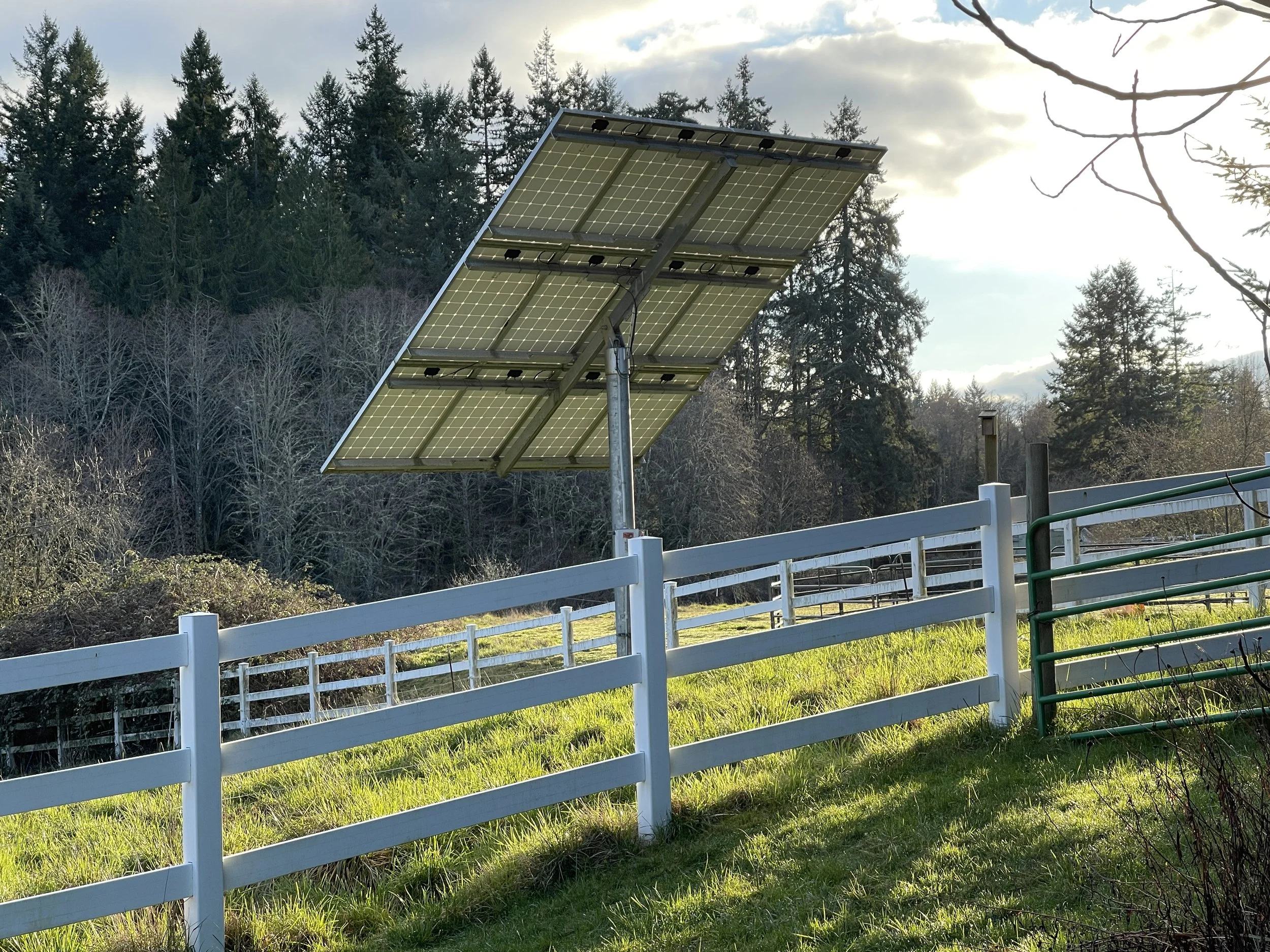
FINANCING & INCENTIVES
Solar electricity is a clean, renewable energy technology that is constantly improving in efficiency. With attractive state and federal incentives, investing in solar power has never been more rewarding.
Federal Tax Credit
The federal solar tax credit—also known as the investment tax credit (ITC)—allows you to deduct 26% of the cost of installing a solar energy system from your federal taxes. This credit applies to both residential and commercial systems with no cap on its value. In fact, thanks to the ITC, the average EnergySage Solar Marketplace shopper saved over $5,000 on the cost of going solar in 2017. Learn more.
State incentives
In Washington State, there is no sales tax on solar systems under 100kW. For more details, check out the Department of Revenue page.
Utility Solar Incentives
Net metering—sometimes called "spin the meter backwards"—allows solar customers to use the electrical grid as a battery. Excess energy produced during the summer is stored as credits and then used during the winter. When your system produces more solar energy than needed, the extra power is sent to the utility and credited back to your account. A bidirectional meter tracks all the power you buy and sell.
Solar Grants & Renewable Energy Funding
We’re proud to showcase the solar grants we’ve been awarded—each one a testament to our commitment to renewable energy and sustainable solutions. These prestigious awards not only validate our innovative work in solar technology but also help us drive cost-effective, high-quality installations for a wide range of communities and organizations. Explore our awarded grants below to learn how each program supports the growth of solar energy across rural businesses, low-income communities, tribal entities, public facilities, and more.
-
The USDA REAP program provides vital solar grants for rural small businesses and farms. This funding enables our rural clients to harness solar energy efficiently, reducing energy costs and supporting sustainable agricultural practices.
-
The WSE Energy Program is dedicated to advancing solar energy initiatives for low-income communities, tribal organizations, and public agencies. By providing solar grants, the program fosters energy independence and environmental sustainability among underserved groups.
-
Puget Sound Energy supports community-based organizations, government agencies, and tribal entities through their solar grant program. This initiative helps local groups adopt renewable energy solutions, promoting clean energy and economic development across the region.
-
Targeted at public buildings and facilities—such as schools, hospitals, community centers, affordable housing, and wastewater treatment plants—this grant program from the WA State Department of Commerce provides the necessary funding to upgrade infrastructure with solar energy, driving both environmental and economic benefits.
Learn more about the WA State Department of Commerce Solar Grants ➛ -
TransAlta’s Centralia Coal Transition initiative offers solar grants to area businesses, nonprofit organizations, and local governments. This program is a key component in transitioning communities toward cleaner energy sources while revitalizing local economies and reducing environmental impact.
Financing Options
We have partnered with local lenders to offer low-interest loans with no home equity required. South Sound Solar customers receive a special reduced interest rate starting at less than 4%! Additionally, agricultural and small businesses can apply for USDA Rural Energy grants, which cover 50% of the installation cost. For further information, visit our Commercial Solar PV page.
Agricultural and small businesses can apply for USDA Rural Energy grants that fund 50% of the installation costs
The Rural Energy for America Program (REAP) helps small businesses access renewable energy by providing grants and loans. You may receive grants of up to $250,000 for energy efficiency projects and up to $500,000 for renewable energy projects. Guaranteed loans of up to $25 million are available for eligible projects. Grants cover up to 50% of a project’s eligible costs, while guaranteed loans cover up to 75%. Combined, they can cover 100% of a project's eligible costs.
Visit the USDA REAP website for more details.
Interested In Solar Electricity?







